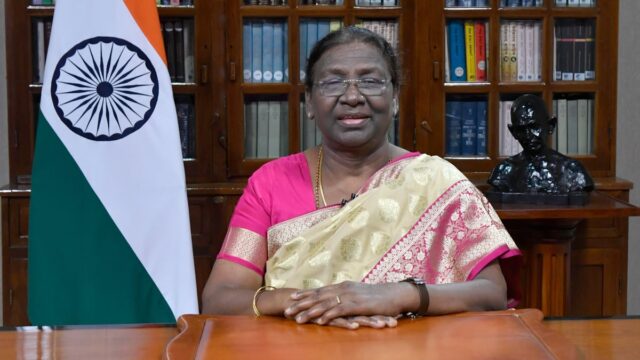President Droupadi Murmu’s renewed pitch for the One Nation One Election plan in her address to the nation on the eve of the 76th Republic Day indicates the government’s seriousness on the issue. With Parliament’s budget session beginning on January 31, the government is certain to try to get the bills on ONOE passed and perhaps refer them to a Joint Parliamentary Committee for further scrutiny.
As it is, the government does not have the numbers to push through a constitutional amendment. The President called for speedy implementation of ONOE to promote consistency in governance, prevent policy paralysis, mitigate resource diversion, and reduce the financial burden.
ONOE has been a pet project of the Narendra Modi government, but it has taken nine years to launch the proposal even tentatively. It has met with resistance from most political parties as an assault on federalism and against the Constitution. It is a fact that for the first few years after Independence, in 1951-52, 1962 and 1967, elections to the Lok Sabha and state assemblies were held simultaneously.
It was only after 1970, when state governments were dismissed, and the tenure of the assemblies began to vary, that parliamentary and assembly elections were held separately. Under One Nation One Election, the plan is to hold elections to the Lok Sabha and all state assemblies simultaneously.
The logistics of the proposal are yet to be worked out as the tenures of state assemblies vary. Some assemblies’ terms will have to be extended while others will have to be drastically cut short to hold simultaneous elections. This is being viewed as a severe attack on federalism, as states will have no say on the length of their assemblies. It is also unfair to those legislators who fought elections in the belief that they would be chosen for a full five-year term.
The Ram Nath Kovind panel, which looked into the possibility of holding simultaneous elections, suggested a 10-point plan to set the process in motion. It included holding local body and panchayat elections also within 100 days of the parliamentary elections.
The panel recommended that the Election Commission draw up a plan for the logistics of such polls, such as procuring electronic voting machines and other equipment, as well as other factors such as deploying adequate security forces for an electoral exercise of such magnitude. The proposal, even if it gets approval, will be implemented only in 2034.
The Opposition, especially strong regional parties, sees ONOE as a bid by the Modi government to clip their wings and bring in a presidential style of governance. Traditionally, the Indian electorate votes differently in parliamentary and state elections, but simultaneous polls may skew the balance in favour of a national party.
The Opposition has declared that ONOE is against the basic structure of the Constitution and vowed to oppose it tooth and nail. Amid claims that it will drastically cut down expenditure and speed up governance, does ONOE really benefit the people of the country? Will this once-in-five-years electoral exercise make politicians even more indifferent to people’s concerns as they are secure that nothing can disrupt their tenures? The financial benefit cannot outweigh the citizens’ needs. After all, it is ‘We the People’ who should matter.
















































